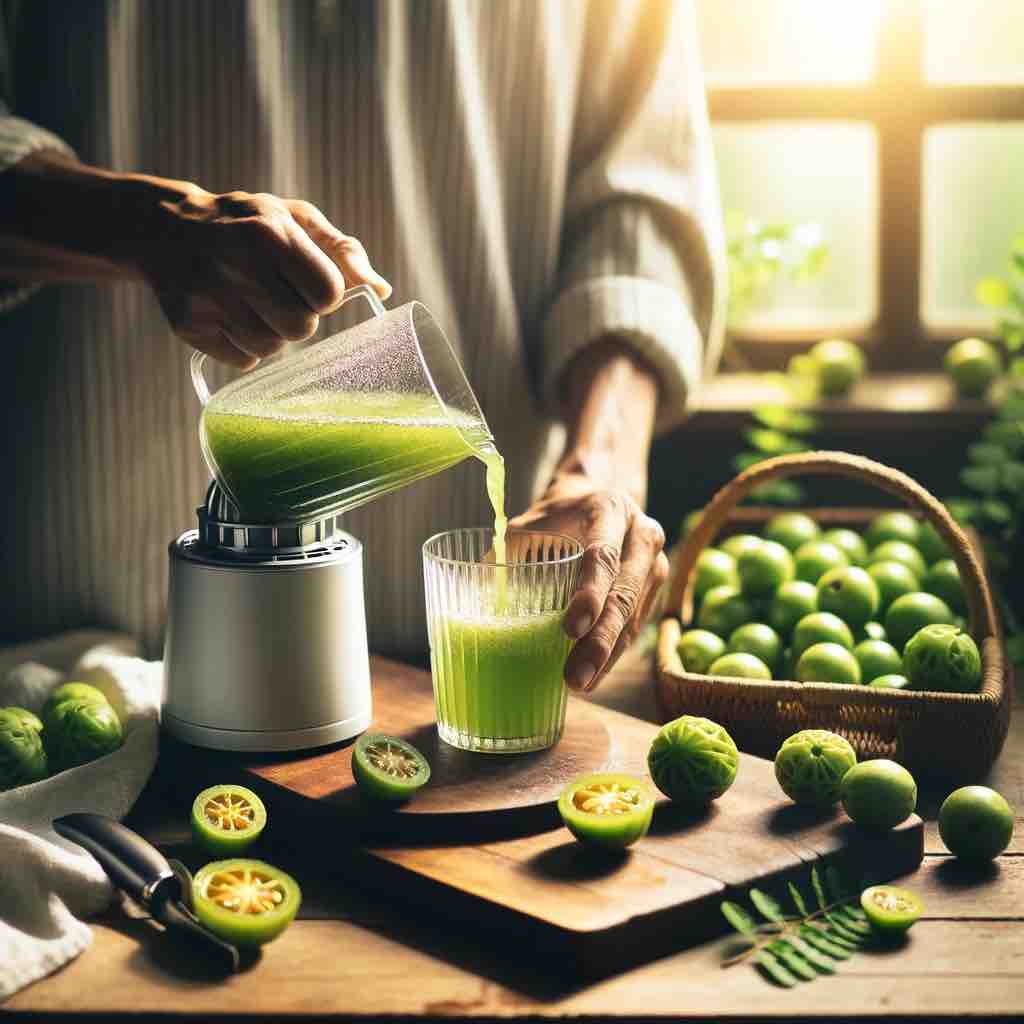
The Indian Gooseberry, or Amla, is a remarkable fruit that holds a venerable position in Ayurvedic medicine, renowned for its myriad health benefits, particularly in the context of diabetes management. This guide aims to delve deeper into the multifaceted benefits of amla for individuals with diabetes, underpinning the scientific rationale behind its efficacy, offering practical advice on its incorporation into daily life, and navigating its potential with a nuanced understanding.
Amla: A Cornerstone of Holistic Diabetes Care
Amla isn’t just another dietary supplement; it’s a holistic health enhancer with a rich history in traditional medicine. Its low glycemic index, high fiber content, and abundance of antioxidants make it a formidable ally against diabetes. Let’s unwrap the layers of benefits amla offers to those looking to manage their blood sugar levels more naturally.
Unpacking the Benefits of Amla in Diabetes Management
- Glycemic Control: Amla’s ability to modulate blood sugar levels stems from its low glycemic load, ensuring a minimal impact on your blood sugar spikes. Its active components, like gallic acid, ellagic acid, and corilagin, contribute to its antidiabetic properties.
- Antioxidant Haven: The extraordinary antioxidant capacity of amla, primarily due to vitamin C and other polyphenols, safeguards the body against oxidative stress, a key player in diabetes progression and its complications.
- Insulin Sensitivity Enhancer: Amla has shown promise in enhancing insulin sensitivity, thereby improving glucose uptake by the cells and aiding in effective blood sugar regulation. This is particularly beneficial for those struggling with insulin resistance.
- Lipid Metabolism: Regular intake of amla can lead to an improved lipid profile, reducing the risk of cardiovascular diseases that are often a concern for those with diabetes. It has a significant effect on reducing bad cholesterol levels while boosting the good ones.
- Immunity Booster: Diabetes can compromise the immune system, making individuals more susceptible to infections. Amla, with its high vitamin C content, strengthens the immune response, offering protection against common pathogens.
- Diabetic Complication Deterrent: By managing blood sugar levels and reducing oxidative stress, amla can play a crucial role in preventing or delaying the onset of diabetes-related complications, such as neuropathy, nephropathy, and retinopathy.
- Digestive Health Promoter: Amla aids in digestion and ensures smooth functioning of the gut. A healthy digestive system is pivotal in managing diabetes, as it directly impacts glucose metabolism and insulin sensitivity.
Strategies for Incorporating Amla into Your Diabetes Management Plan
- Start Your Day with Amla: Drinking amla juice first thing in the morning can kickstart your metabolism and stabilize your blood sugar levels from the get-go.
- Amla Snacks: Fresh amla slices can be a refreshing midday snack. Its tangy flavor can be a delightful palate cleanser while offering all the metabolic benefits.
- Creative Culinary Uses: Amla can be grated or powdered and added to dips, dressings, and even main dishes, enriching your meals with its nutritional profile.
- Herbal Teas: Steep amla in hot water along with other herbs like ginger or cinnamon for a therapeutic herbal tea that aids in blood sugar control.
- Supplemental Support: For those who find the taste challenging, amla is available in capsule or tablet form, providing a convenient way to get your daily dose.
Navigating Amla Consumption: Precautions and Recommendations
While amla is a potent natural remedy, its efficacy and safety can vary among individuals. It’s essential to:
- Consult Healthcare Professionals: Before making amla a staple in your diabetes care regimen, consult with healthcare providers, especially if you are on other diabetes medications.
- Moderation is Key: Excessive consumption can lead to digestive discomfort or interact with medications, underscoring the importance of moderation.
- Quality Matters: Opt for organically grown amla to avoid exposure to pesticides and ensure the highest nutrient content.
Conclusion: Embracing Amla for a Healthier Tomorrow
Amla’s role in diabetes management is a testament to the power of nature in nurturing health. By integrating amla into your diet and lifestyle, you embrace a holistic approach to diabetes management that not only targets blood sugar levels but also fortifies your overall health.
10 FAQs for “7 Amazing Benefits of Amla for Diabetes”
1. How does amla help manage diabetes?
Amla helps in managing diabetes by enhancing insulin sensitivity, reducing blood sugar levels, and improving the body’s natural insulin response due to its rich antioxidant content and low glycemic index.
2. Can amla juice be consumed daily for diabetes control?
Yes, consuming amla juice daily, especially on an empty stomach, can help regulate blood sugar levels. However, moderation is key, and it’s best to start with small amounts to assess tolerance.
3. Is there a specific time to consume amla for it to be most effective in diabetes management?
Consuming amla juice in the morning on an empty stomach is considered most beneficial. However, amla can be incorporated into the diet at different times based on personal convenience and preference.
4. Can amla cure diabetes?
While amla cannot cure diabetes, it is a powerful adjunct in managing the condition. Its consumption should complement prescribed diabetes treatments and a healthy lifestyle.
5. How much amla should I consume daily?
It is recommended not to consume more than 1-2 amlas per day. In the case of amla juice, starting with 30-60 ml per day is advisable.
6. Are there any side effects of consuming amla?
Excessive consumption of amla can lead to dehydration and constipation due to its diuretic nature. It’s important to consume it within recommended limits.
7. Can I eat amla if I have gestational diabetes?
Amla can be beneficial for managing gestational diabetes, but it’s crucial to consult with a healthcare provider for personalized advice.
8. How can amla be included in a diabetic diet?
Amla can be consumed fresh, as juice, in powdered form, or as part of various dishes. Incorporating it into salads, smoothies, or even as a condiment can be beneficial.
9. Does amla interact with diabetes medications?
Amla may enhance the effects of diabetes medications by further lowering blood sugar levels. Monitoring blood sugar levels and consulting with a healthcare provider is recommended.
10. Can amla improve insulin resistance?
Yes, amla is known to enhance insulin sensitivity, thereby helping to improve insulin resistance, a common issue in type 2 diabetes.
Blog Tags
amla, diabetes management, blood sugar control, natural remedies, Ayurvedic medicine, antioxidants, insulin sensitivity, heart health, dietary fiber, holistic health













